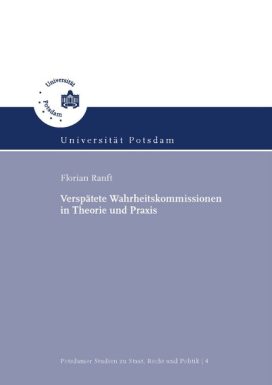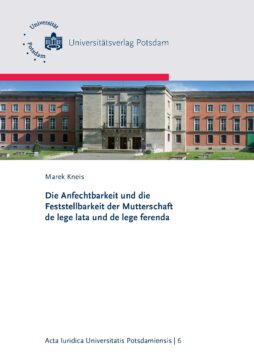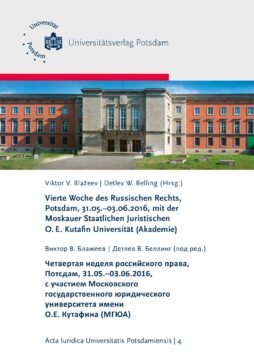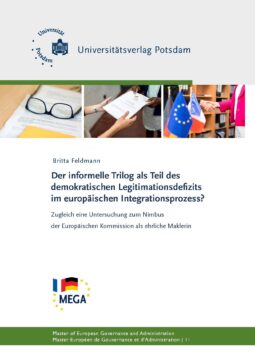For dealing with former human rights violations post-conflict societies have several choices. Besides criminal prosecutions truth commissions have been set up since the mid 1970 to find a way for reconciliation between perpetrators and victims. This paper focuses on the analysis of truth commissions with a significant time span to the transitional period in a comparative manner and asks for the causal mechanisms linked to it. To explain the time lack hypotheses are tested on the balance of power, civil-military reforms and the degree of human rights violations. The analyses for the truth commissions in Uruguay, Ghana and Panama indicate that a lower degree of human rights violations and the elections of political leaders and parties closely linked to the authoritarian era foreclose the establishment process. These results are controlled by the analysis of truth commissions in Argentina, South Africa and Haiti that were directly set up after the transition. Further it is argued that civil-military reforms have no influence on the establishment of truth commissions and that the balance of power is not levelled as is argued in the literature.
ISBN: 978-3-86956-034-2
122 pages
Release year 2010
Series: Potsdamer Studien zu Staat, Recht und Politik , 4
8,00 €
Non-taxable transaction according to § 1 (1) UStG/VAT Act in combination with § 2 (3) UStG/VAT Act a. F. Providing this service, the University of Potsdam does not constitute a Betrieb gewerblicher Art/Commercial Institution according to § 1 (1) No. 6 or § 4 KStG/Corporate Tax Act. If the legal characterization of our business is changed to a commercial institution subsequently, we reserve the right to invoice VAT additionally. zzgl. Versandkosten
For dealing with former human rights violations post-conflict societies have several choices. Besides criminal prosecutions truth commissions have been set up since the mid 1970 to find a way for reconciliation between perpetrators and victims. This paper focuses on the analysis of truth commissions with a significant time span to the transitional period in a comparative manner and asks for the causal mechanisms linked to it. To explain the time lack hypotheses are tested on the balance of power, civil-military reforms and the degree of human rights violations. The analyses for the truth commissions in Uruguay, Ghana and Panama indicate that a lower degree of human rights violations and the elections of political leaders and parties closely linked to the authoritarian era foreclose the establishment process. These results are controlled by the analysis of truth commissions in Argentina, South Africa and Haiti that were directly set up after the transition. Further it is argued that civil-military reforms have no influence on the establishment of truth commissions and that the balance of power is not levelled as is argued in the literature.
Recommended Books
-
 2016
2016Logi Gunnarsson, Eckart Klein, Andreas Zimmermann
MenschenRechtsMagazin ; 20 (2015) 2
12,50 €Non-taxable transaction according to § 1 (1) UStG/VAT Act in combination with § 2 (3) UStG/VAT Act a. F. Providing this service, the University of Potsdam does not constitute a Betrieb gewerblicher Art/Commercial Institution according to § 1 (1) No. 6 or § 4 KStG/Corporate Tax Act. If the legal characterization of our business is changed to a commercial institution subsequently, we reserve the right to invoice VAT additionally.
zzgl. Versandkosten
Add to cart -
 2019
2019Die Anfechtbarkeit und die Feststellbarkeit der Mutterschaft de lege lata und de lege ferenda
16,50 €Non-taxable transaction according to § 1 (1) UStG/VAT Act in combination with § 2 (3) UStG/VAT Act a. F. Providing this service, the University of Potsdam does not constitute a Betrieb gewerblicher Art/Commercial Institution according to § 1 (1) No. 6 or § 4 KStG/Corporate Tax Act. If the legal characterization of our business is changed to a commercial institution subsequently, we reserve the right to invoice VAT additionally.
zzgl. Versandkosten
Add to cart -
 2018
2018Detlev W. Belling, Viktor V. Blažeev, Aleksander Sitnik, Tatjana Susina, Olga Tarasenko, Sergej S. Zenin
Vierte Woche des Russischen Rechts, Potsdam, 31.05.-03.06.2016, mit der Moskauer Staatlichen Juristischen O. E. Kutafin Universität (Akademie)
6,50 €Non-taxable transaction according to § 1 (1) UStG/VAT Act in combination with § 2 (3) UStG/VAT Act a. F. Providing this service, the University of Potsdam does not constitute a Betrieb gewerblicher Art/Commercial Institution according to § 1 (1) No. 6 or § 4 KStG/Corporate Tax Act. If the legal characterization of our business is changed to a commercial institution subsequently, we reserve the right to invoice VAT additionally.
zzgl. Versandkosten
Add to cart -
 2024
2024Der informelle Trilog als Teil des demokratischen Legitimationsdefizits im europäischen Integrationsprozess?
Non-taxable transaction according to § 1 (1) UStG/VAT Act in combination with § 2 (3) UStG/VAT Act a. F. Providing this service, the University of Potsdam does not constitute a Betrieb gewerblicher Art/Commercial Institution according to § 1 (1) No. 6 or § 4 KStG/Corporate Tax Act. If the legal characterization of our business is changed to a commercial institution subsequently, we reserve the right to invoice VAT additionally.
Read more
Publisher Info
Contact
Potsdam University Library
University Press
Am Neuen Palais 10
14476 Potsdam
Germany
verlag@uni-potsdam.de
0331 977-2094
0331 977-2292





